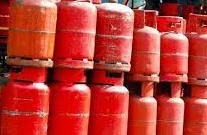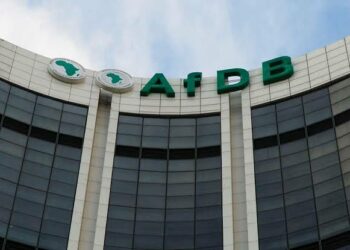In response to the pressing issue of escalating cooking gas prices plaguing consumers nationwide, the Federal Government of Nigeria has taken decisive action by announcing a ban on the exportation of Liquefied Petroleum Gas (LPG), popularly known as cooking gas.
This significant development was revealed by the Minister of Petroleum (Gas), Ekperikpe Ekpo, during an “Internal Stakeholders” workshop held in Abuja, where he addressed journalists and industry insiders.
Against the backdrop of mounting concerns over the surging cost of cooking gas, Minister Ekpo reiterated the government’s unwavering commitment to prioritising the interests of Nigerian consumers.
He stated, “We are interacting with critical stakeholders to ensure that there is no exportation of LPG.”
Ekpo further emphasised, “All LPG produced within the country will have to be domesticated. And when this is done, the volume will increase and, of course, the price will automatically crash.”
During the workshop, themed: “Harnessing Nigeria’s Proven Gas Reserves for Economic Growth and Development,” Minister Ekpo shed light on ongoing efforts to engage with critical stakeholders, including regulatory bodies such as the Nigerian Midstream and Downstream Petroleum Regulatory Authority, as well as industry giants like Mobil, Chevron, and Shell. Moreover, Minister Ekpo highlighted the government’s proactive stance on incentivising investment by withdrawing taxes and levies on the importation of gas-related equipment.
He affirmed, “With the issue of gas, you have seen the demonstration of the federal government by withdrawing all taxes and levies from the importation of gas-related equipment. It is a big incentive.”
The decision to ban cooking gas exportation comes amid reports of surging prices, with consumers grappling with costs ranging between N17,000 and N18,000 per cylinder, compared to approximately N9,000 just a few months ago. The sharp increase has sparked widespread concern, prompting urgent government intervention to mitigate the financial strain on households.
In earlier warnings issued by gas retailers under the aegis of the Nigerian Association of Liquefied Petroleum Gas Marketers, concerns were raised regarding the possibility of prices soaring to N18,000 per cylinder by December 2023 if regulatory measures were not implemented promptly. President of the association, Olatunbosun Oladapo, attributed the unjustifiable price hikes to terminal owners exploiting the high foreign exchange rate, exacerbating hardship for consumers across the country.
As stakeholders unite in a concerted effort to navigate the challenges confronting the gas sector, there remains cautious optimism for tangible solutions and relief for Nigerian consumers burdened by the financial strain of escalating cooking gas prices. Minister Ekperikpe Ekpo’s assurances and the government’s proactive measures signal a steadfast commitment to safeguarding the interests of the populace and fostering sustainable economic growth through effective gas market regulation and management.





